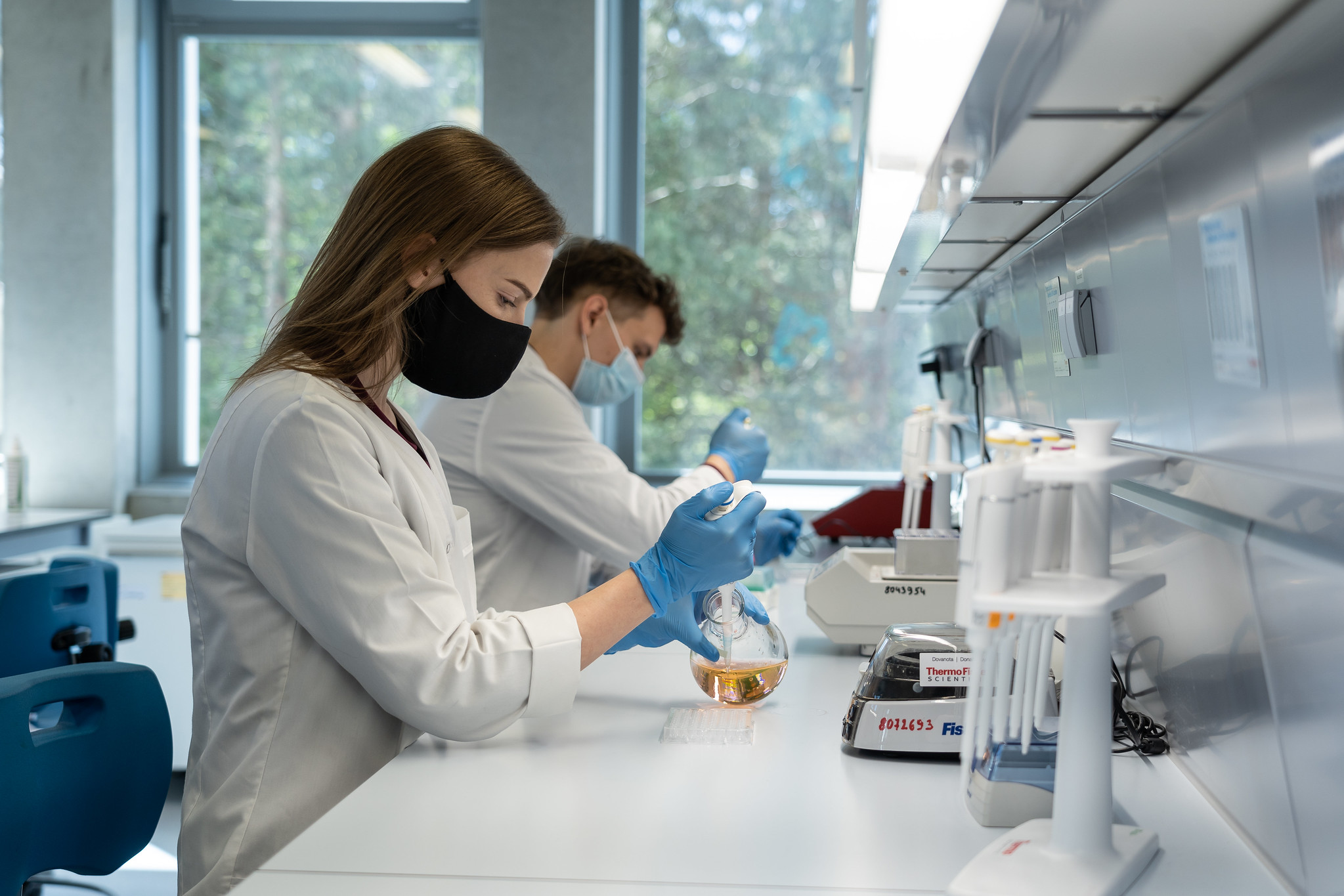“VU Experts Help Understand”: the 2023 Medicine Nobel– for Work with Messenger RNA (mRNA) Technology
 The 2023 Nobel Prize season started on Monday. The Nobel Prize in Physiology or Medicine was awarded jointly to the Hungarian biochemist Katalin Karikó and the US immunologist Drew Weissman for their discoveries concerning nucleoside base modifications that enabled the development of effective mRNA vaccines against COVID-19. Prof. Dr Tomas Kačergius, researcher at the Department of Physiology, Biochemistry, Microbiology, and Laboratory Medicine of the Institute of Biomedical Sciences of the Faculty of Medicine of Vilnius University (VU), says that this discovery is a fundamental one, which became the basis for the creation of a new-generation vaccines that contributed to the containment of the pandemic.
The 2023 Nobel Prize season started on Monday. The Nobel Prize in Physiology or Medicine was awarded jointly to the Hungarian biochemist Katalin Karikó and the US immunologist Drew Weissman for their discoveries concerning nucleoside base modifications that enabled the development of effective mRNA vaccines against COVID-19. Prof. Dr Tomas Kačergius, researcher at the Department of Physiology, Biochemistry, Microbiology, and Laboratory Medicine of the Institute of Biomedical Sciences of the Faculty of Medicine of Vilnius University (VU), says that this discovery is a fundamental one, which became the basis for the creation of a new-generation vaccines that contributed to the containment of the pandemic.
Modified to prevent inflammatory reactions
“Messenger RNA transcribed in vitro (in a test tube) was first introduced during the 1980s, and the hope was that it would aid in creating pharmaceuticals or vaccines in the future. However, using this transcribed RNA in vivo (in a living organism) was challenging: it gave rise to inflammatory reactions in mice and other animals. The reason for this was that dendritic cells recognised in vitro transcribed RNA as a foreign substance, which led to their activation and the release of inflammatory signalling molecules”, explains Prof. Dr Kačergius.
Therefore, according to him, the use of this discovery was somewhat muted for a while
. However, the biochemist Karikó and the US immunologist Weissman managed to modify mRNA so that it would not be recognised as a foreign substance by an organism and thus not cause an inflammatory reaction.
“Karikó modified one of the nucleosides – uridine – so that between the heterocyclic base – uracil – and ribose, a covalent bond between two carbon atoms would form instead of a glycosidic bond. This modification is what solved the issue of messenger RNA causing inflammatory reactions. This year’s Nobel Laureates made this discovery and tested it in 2005, 2008, and 2010. This gave rise to the use of messenger RNA vaccines in practice, including vaccines against COVID-19”, says Prof. Dr Kačergius.
Due to fast production and implementation – help in containing the global pandemic
According to the VU Professor, the main advantage of these vaccines is their fast production and implementation. Although these experimental vaccines were still in phases two to three of the clinical trial before the Coronavirus, the COVID-19 pandemic meant that it had become a necessity to start producing and implementing this type of vaccine in practice.
“Classic antiviral vaccines require the virus to be cultivated and extracted from chicken embryos or cell cultures. This requires a lot of time – the virus has to be cultivated and extracted in large quantities. The new vaccines based on mRNA need only one thing – to properly transcribe messenger RNA by using modifications discovered by Karikó and Weissman. As a result – the discovery laid a foundation for the ‘Pfizer/BioNTech’ and ‘Moderna’ vaccines”, states Prof. Dr Kačergius.
He believes that the discovery, which was awarded the Nobel Prize in Physiology or Medicine, was one of the key factors in containing the pandemic.
The Prize, consisting of a diploma, a gold medal, and a monetary award of one million US dollars, will be awarded to the scientists by King Carl XVI Gustaf during an official ceremony in Stockholm on 10 December. 68-year-old Karikó from Hungary and 64-year-old Weissman from the US are long-time colleagues at the University of Pennsylvania and have received multiple awards for their research, including the prestigious Lasker Award they received in 2021, which is often considered the forerunner of the Nobel Prize.